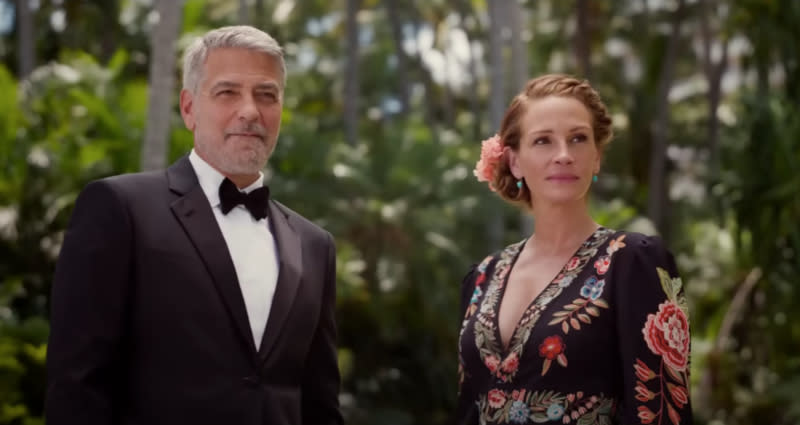“Ticket to Paradise,” an upcoming romantic comedy starring Julia Roberts and George Clooney, drew criticism earlier this week after it was discovered that the film was shot in Australia despite the story taking place in Bali, Indonesia.
Indonesia’s Tourism and Creative Economy Minister Sandiaga Uno defended the film in a press conference on Tuesday.
Sandiaga said during the briefing that the production team for “Ticket to Paradise” was one of several that had approached his department about filming in Bali during the height of the COVID-19 pandemic. Strict social measures to prevent the spread of the virus were implemented at the time. The movie ended up being shot on an island in Queensland, Australia, from November 2021 to February 2022 and received a $4.3 million grant called the Location Incentive for doing so.
“I said that when it comes to facilitating visa relaxations and easing shooting permissions, we would be able to [help]. But when it comes to COVID-19, we have to follow the rules from the COVID-19 Task Force,” Sandiaga said.
More from NextShark: Simu Liu plays a one-eyed samurai in Netflix anime ‘Bright: Samurai Soul’ set in feudal Japan
Sandiaga also added that the film could still promote tourism to Bali, which was hit hard economically during the pandemic due to its tourism-dependent nature, according to Coconuts. The island has only recently shown signs of improvement after opening back up to tourists this year.
Aside from the filming location, other criticism against the upcoming movie involves the actor playing a local Balinese being of mixed-race descent. Similar to the controversial casting of Henry Golding in the 2018 hit “Crazy Rich Asians,” some have argued that the casting of Makime Bouttier, who is of Indonesian and French descent, imposes Western beauty standards on Asian men.
There is also controversy regarding whether the movie perpetuates the same kind of “colonial gaze” that the previous Roberts film “Eat Pray Love” drew backlash for. Intan Paramadith, a media and film studies lecturer at Sydney’s Macquarie University, noted the way media represents travel in response to the movie.
More from NextShark: ‘Superstore’ actor Nico Santos surprised with an onstage proposal from his boyfriend at GLAAD Awards
“In the travel romance genre specifically, we usually see Western middle-class female protagonists (as this genre is targeted mainly at female audiences) who enjoy their independence and freedom to travel due to their class and white privilege,” she was quoted as saying by South China Morning Post. “They face a problem at the beginning but order is restored at the end, and the places that they visit often serve as a catalyst for change.”
She continued, “The films perpetuate the colonial gaze that reduces places and people merely as a landscape for Western characters to stand out or assert agency; this gaze depends on the invisibility of labor of local people and the exploitation of natural resources to support tourism.”
Others have come to the movie’s defense, with Indonesian filmmaker Rahung Nasution pointing to how the film is fiction and thus open to creative liberties when it comes to both shooting and casting.
More from NextShark: Leaked data reveals ‘Squid Game’ has made Netflix nearly $900 million, over 42 times its original cost
“Fiction and nonfiction films are two different fields. If a documentary about Bali was shot at Lake Toba in Sumatra, then that would be a problem,” he said.
Featured Image via Universal Pictures
More from NextShark: Grab ‘em by the…balls? ‘Squid Game’ director compares VIP character to Donald Trump
